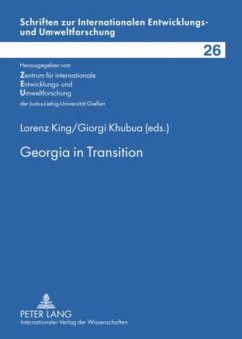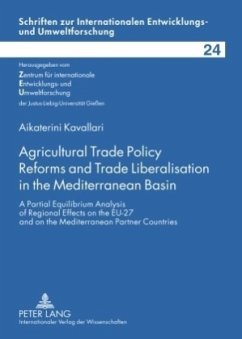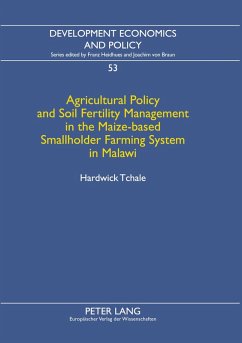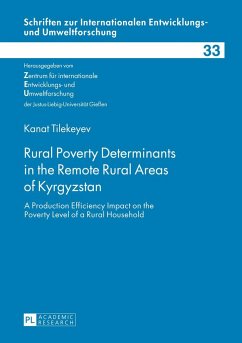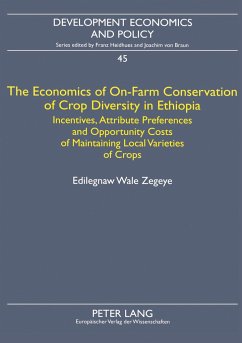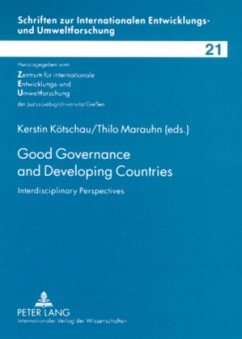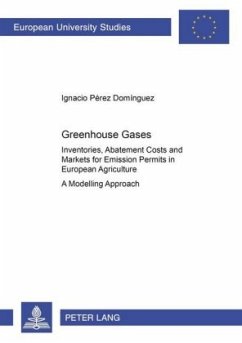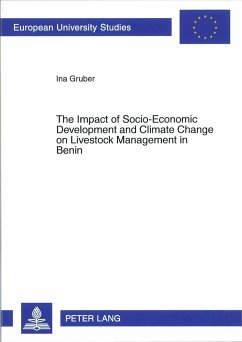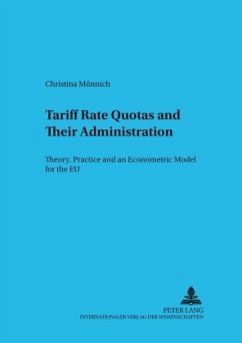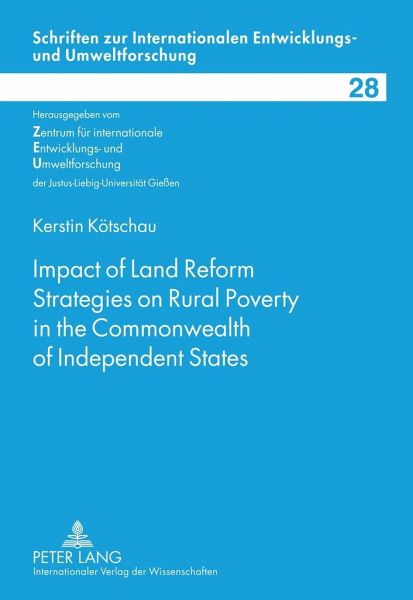
Impact of Land Reform Strategies on Rural Poverty in the Commonwealth of Independent States
Comparison between Georgia and Moldova
Versandkostenfrei!
Versandfertig in 6-10 Tagen
73,25 €
inkl. MwSt.

PAYBACK Punkte
0 °P sammeln!
This study aimed at analysing the impact of two different land reform strategies on rural poverty in CIS countries, particularly in Georgia and Moldova. While Georgia distributed agricultural land parcels directly to the population at the beginning of the 1990ies, Moldova transferred land via paper shares for undemarcated land parcels. This study is based on household data, which were collected during household surveys in Georgia and Moldova in 2007 and 2008. The data had been used in order to analyse the impact of land reform on the endowment with land and other capital, the use of capital an...
This study aimed at analysing the impact of two different land reform strategies on rural poverty in CIS countries, particularly in Georgia and Moldova. While Georgia distributed agricultural land parcels directly to the population at the beginning of the 1990ies, Moldova transferred land via paper shares for undemarcated land parcels. This study is based on household data, which were collected during household surveys in Georgia and Moldova in 2007 and 2008. The data had been used in order to analyse the impact of land reform on the endowment with land and other capital, the use of capital and the access to markets and credits as well as the importance of agricultural employment for rural households. A logit analysis had been run in order to detect the determinants of poverty.



